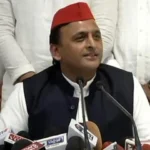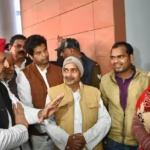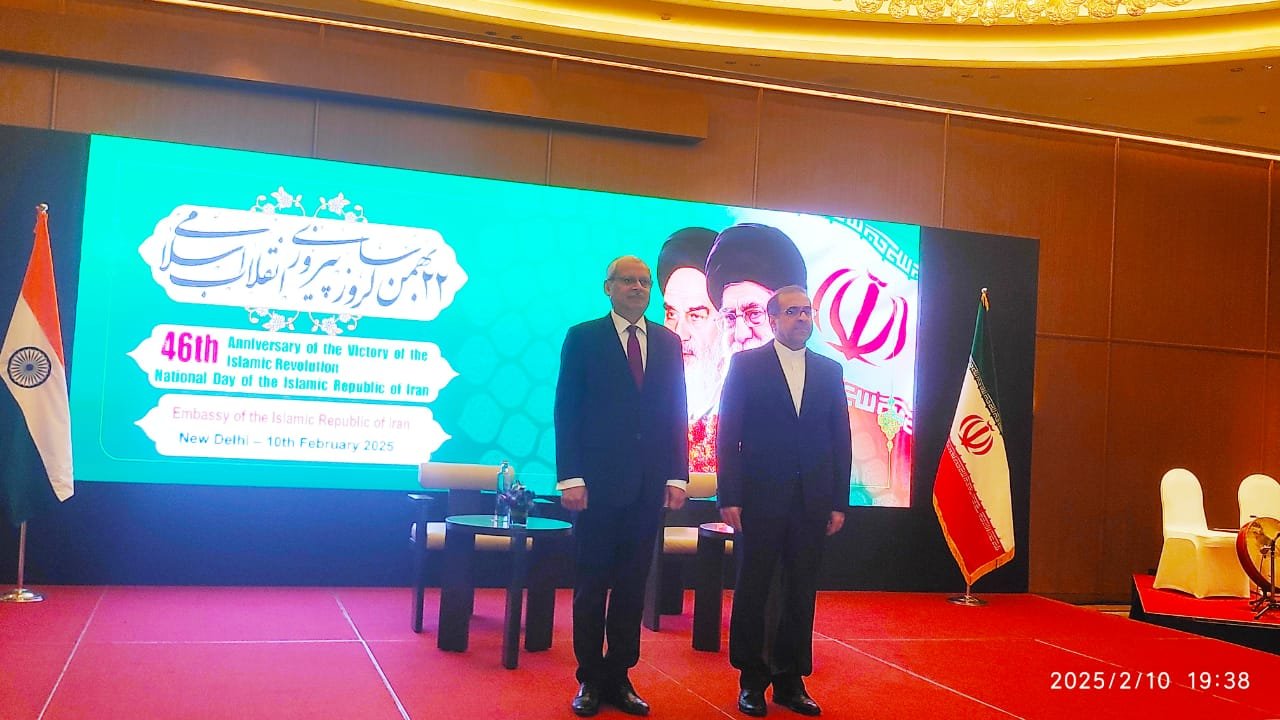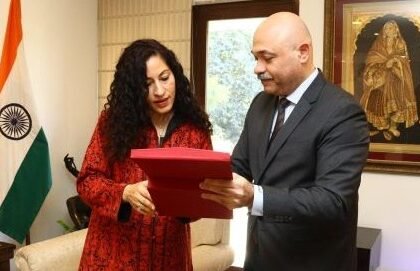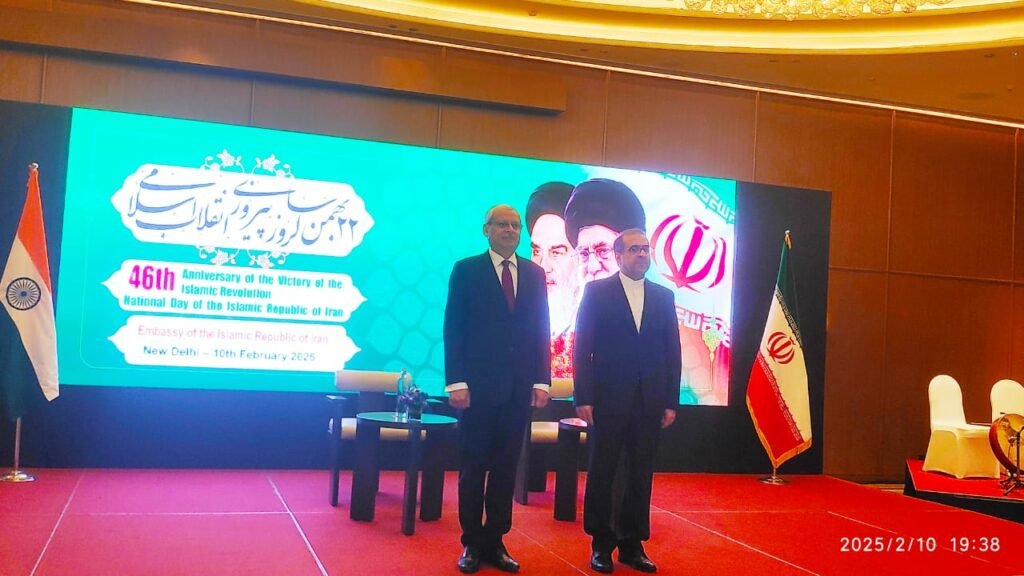
BY MOHAMMAD TARIQUE SALEEM
On the occasion of the 46th anniversary of the Islamic Revolution, Dr. Iraj Elahi, Ambassador of the Islamic Republic of Iran, emphasized the significance of this transformative movement that reshaped Iran and influenced global affairs. He welcomed His Excellency Jaideep Mazumdar, Honorable Secretary of East, Ministry of External Affairs, along with other distinguished guests, in celebrating this milestone.
The Islamic Revolution of Iran faced numerous challenges from its inception. External forces attempted to hinder Iran’s progress, yet the resilience and determination of the Iranian people enabled the nation to overcome obstacles and achieve remarkable success. Over the past decades, Iran has made significant strides in various fields, including health, education, science, technology, human rights, security, and defense. Today, Iran stands as a leader in cutting-edge sectors such as nanotechnology and biotechnology.
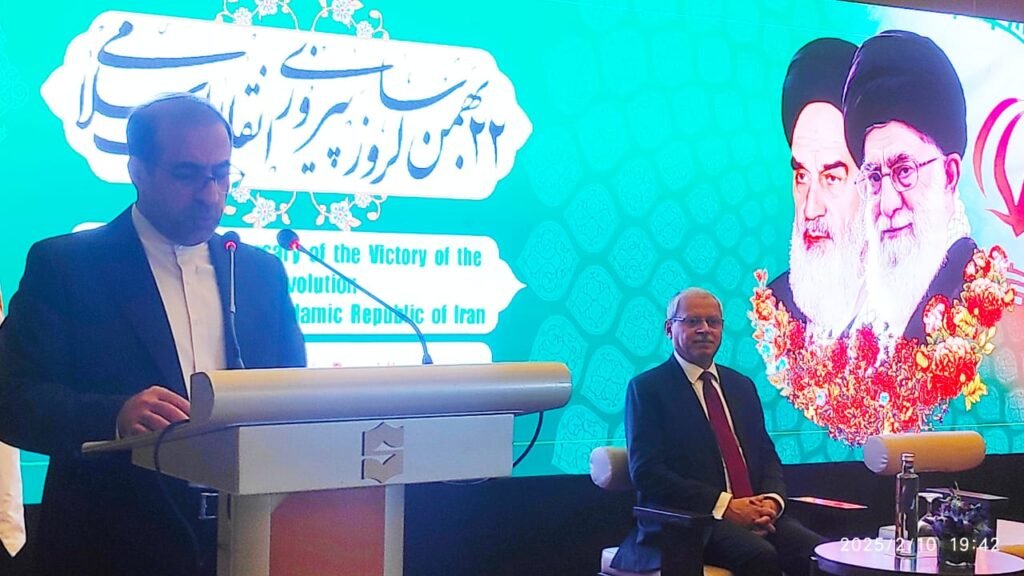
With 3.2 million university students, nearly half of whom are women, Iran has fostered gender balance and increased female participation in higher education. The inclusion of women and minorities in junior and senior government positions further reflects the government’s commitment to inclusive governance. Iran’s Human Development Index (HDI) has consistently improved due to policies focused on social justice, poverty alleviation, and sustainable development. The government remains dedicated to upholding human rights, as guaranteed by the Iranian constitution, domestic legislation, and international treaties.
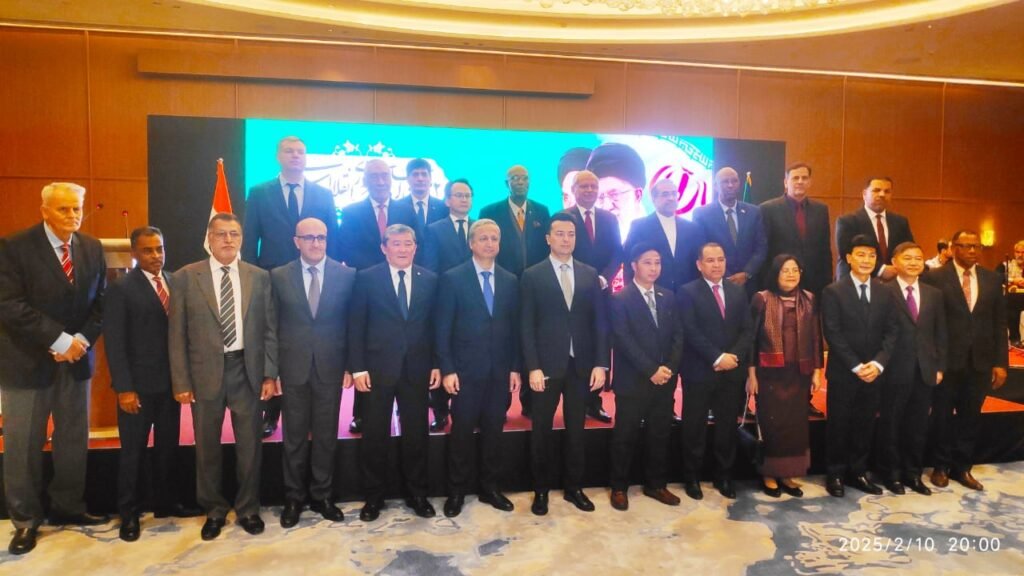
Iran’s progress in the technology sector is evident with nearly 10,000 knowledge-based companies contributing to the country’s advancement in science and innovation. Iran ranks as the second-leading Muslim country in scientific production and is a major producer of medical isotopes used in treating cancer and neurological disorders. Iranian scientists have also demonstrated expertise in space exploration, successfully launching at least 10 satellites into orbit, further cementing Iran’s position in global scientific progress.
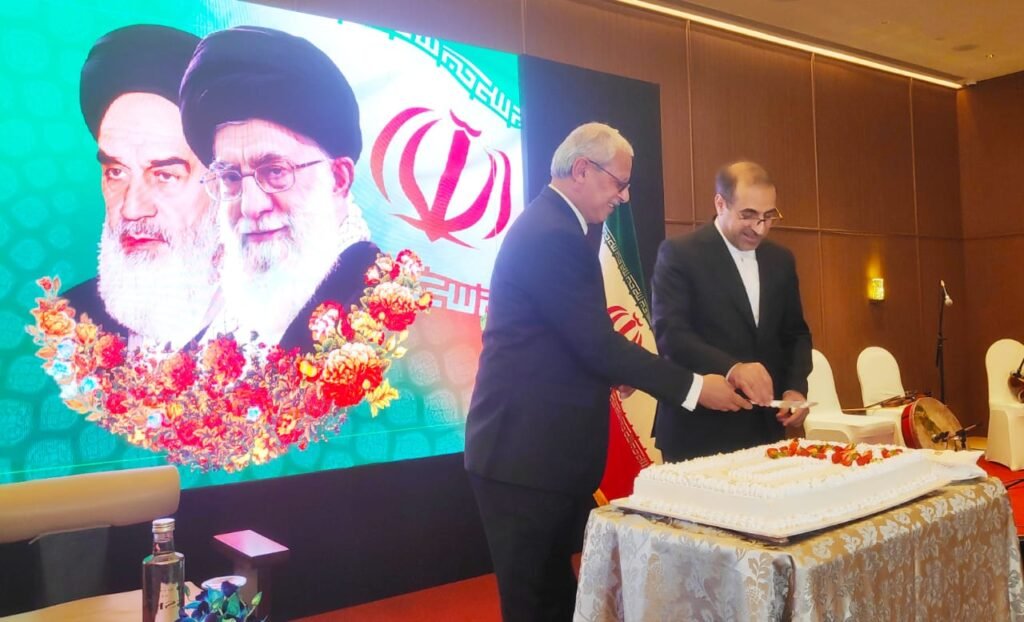
In foreign policy, Iran prioritizes national interests, security, and economic diplomacy, actively promoting peace and stability through dialogue and cooperation with neighboring nations. With a vision of balanced political, economic, and cultural relations, Iran seeks to reduce tensions, enhance collective security, and address regional challenges. The country plays a proactive role in combating terrorism and strongly opposes illegal sanctions imposed by the United States. Iran remains committed to justice, equality, and respect for the sovereignty of all nations. The nation’s engagement with regional organizations such as BRICS, the Shanghai Cooperation Organization (SCO), ECO, and D-8 underscores its commitment to regional prosperity.
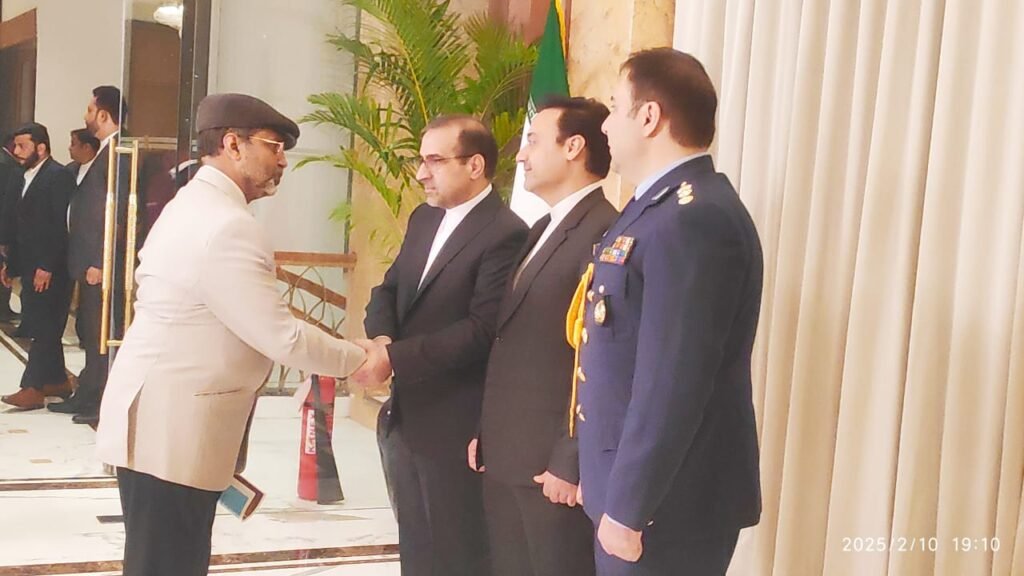
For over 70 years, the Palestinian people have endured occupation and suffering, facing violations of their fundamental rights and the sanctity of their holy sites. Iran continues to stand in support of Palestine, advocating for justice and self-determination. Additionally, Iran’s nuclear program has always adhered to international regulations under the supervision of the International Atomic Energy Agency (IAEA). The nation firmly believes in diplomacy and negotiation to address concerns regarding its nuclear activities, despite the United States’ withdrawal from the Joint Comprehensive Plan of Action (JCPOA) and European nations failing to fulfill their commitments under the agreement.
Iran and India share a longstanding friendship rooted in cultural and historical ties. Persian, recognized as one of India’s classical languages, symbolizes the deep cultural connection between the two nations. Both countries collaborate on regional and global issues, particularly within the SCO and BRICS frameworks. Recent discussions between President Pezeshkian and Prime Minister Modi at the BRICS summit in Russia have opened doors for further cooperation. Economic relations between Iran and India continue to expand across multiple sectors.
The signing of a long-term agreement for the operation of Chabahar Port highlights the strategic partnership between the two nations. Known as the “golden gateway,” this port serves as a crucial link connecting Indian Ocean nations with Central Asia and the Caucasus. Additionally, the International North–South Transport Corridor stands as another testament to the strong economic collaboration between Iran and India. As Iran marks the 46th anniversary of the Islamic Revolution, it reaffirms its commitment to progress, cooperation, and global peace. The nation remains dedicated to fostering stability, economic development, and diplomatic engagement, ensuring a prosperous future for the region and beyond.



